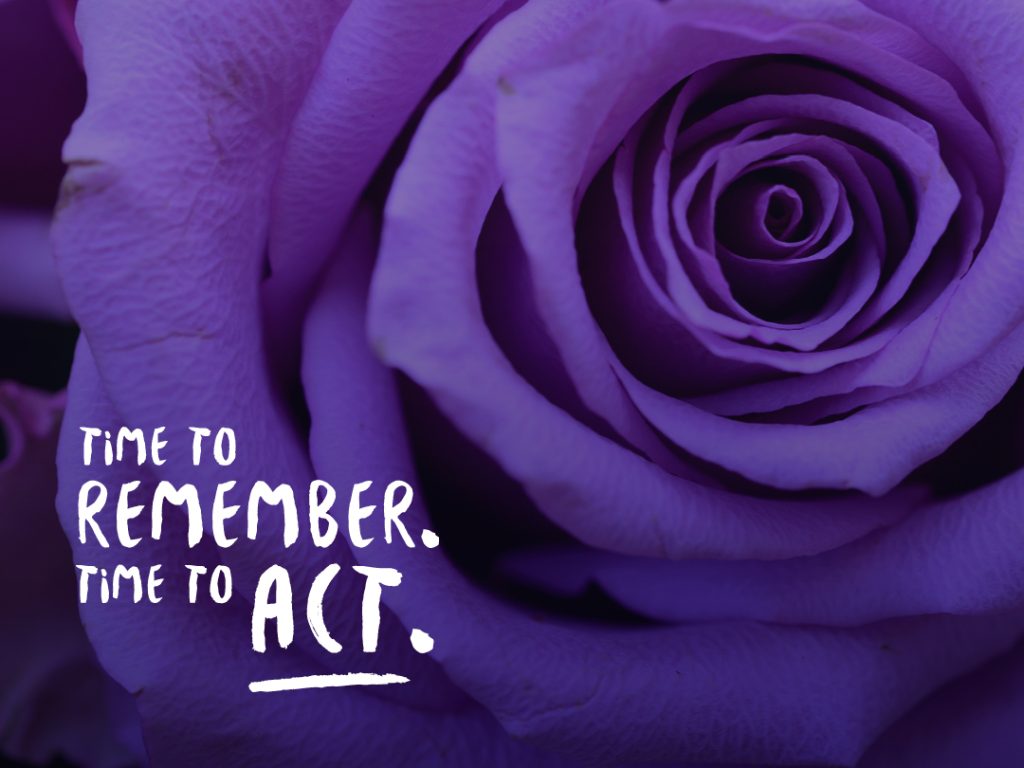Working together to reduce overdose
August 31, 2023
31 August is International Overdose Awareness Day. Overdose continues to cause loss of life and other harms to a wide range of Tasmanians, but there are ways to reduce and prevent it.
Anglicare marked International Overdose Awareness Day with a community gathering at a new memorial at its Glenorchy office. The memorial is situated in a rose garden that is still under development. It was a free event where people were invited to leave a memento to remember family members and friends who had lost their life due to overdose.
Anglicare also combined with Youth Family & Community Connections for a gathering in Burnie to raise awareness of overdose and remember loved ones who have died.
General Manager Housing and Community Services Noel Mundy said the trauma of losing a family member or close friend had a major impact on many people in our community.
“We encourage everyone who needs support to reach out to Anglicare’s Alcohol and Drug services or speak with their medical supports,” he said.
“International Overdose Awareness Day is a day we would prefer not to have to recognise, but it is a time we can support one another and acknowledge our loss.”
The Tasmanian situation
Earlier this month, Dr Amy Peacock from the University of New South Wales delivered a webinar hosted by the Alcohol, Tobacco and Other Drugs Council of Tasmania (ATDC) to launch IAOD on behalf of the national Drugs Trend project that is funded by the Australian government. The University of Tasmania is also involved in the project.
Dr Peacock’s webinar provided insights into the prevalence of drug-related overdose in Tasmania. (It’s important to note that the following statistics do not include deaths that are attributable to alcohol or tobacco):
- There were 44 deaths recorded in Tasmania in 2021 that were attributed to overdose and other drug use. This equates to 7.5 deaths per 100,000 Tasmanians – higher than the national figure of 6.9.
- Most commonly, these deaths were unintentional.
- They involved a diverse group of people. However, most were male, in the 45-54 age group and living in inner regional areas that were also classed as disadvantaged. 82% of deaths occurred at home.
There were 750 drug-induced deaths among Tasmanians between 2001 and 2021.
Anglicare’s Alcohol and Other Drugs (AOD) services
Anglicare offers a range of supports for people who use alcohol and other drugs, and their family members. Visit this webpage to find a program that suits your circumstances.
Visit this page to find out all about the Needle and Syringe Program.
We also offer an education program about blood-borne viruses.
Anglicare has a range of community services that may benefit people who use drugs and alcohol, including financial counselling, Gamblers Help and courses that develop stronger mental health and parenting skills. We may also be able to assist you with housing.
The role of naloxone
Most overdoses in Tasmania involve opioids (drugs derived from the poppy plant.) Anyone who takes opiates, either recreationally or as part of a pharmaceutical prescription for pain relief, is at risk of accidental overdose.
Most overdoses are caused by a prescription medicine, rather than an illicit drug such as heroin. Prescription medicines in the opioid family include morphine, codeine, tramadol, buprenorphine, methadone and fentanyl.
Naloxone is an overdose reversal drug that has potentially saved the lives of 92 Tasmanians since it was made free at Needle and Syringe Program outlets in July 2020.
It’s a nasal spray that is very easy to administer and works within two to three minutes. It provides a window of opportunity to get medical help.
Naloxone is now available Australia-wide. Check the list below for the location nearest to you.
What are the signs of an overdose?
- The person is not breathing.
- The person is breathing, but it is shallow and/or erratic.
- The person’s fingertips and/or lips have turned blue or grey. This indicates there is not enough oxygen reaching the brain.
- There is no response at all when you try and wake the person up.
What should I do?
- Call an ambulance immediately. The police will not become involved even if the overdose response at all when you try and wake the person up.
- If you have naloxone at hand, use it. If it’s safe to do so, have the person lie on their back, tilt their head back, check their nasal passage is clear and administer the spray.
- It’s important to stay with the person until the ambulance arrives.
Where can I get naloxone from?
159 Collins Street, Hobart (Anglicare)
436 Main Road, Glenorchy (Anglicare)
6 Bowden Drive, Bridgewater (Bridgewater Community Centre)
Clarence Integrated Health Centre, Rosny (Department of Health)
111 Elizabeth Street,Launceston (The Salvation Army)
51 Wilmot Street, Burnie (Anglicare)
63 Stewart Street, Devonport (Youth, Family and Community Connections).
If you live in Hobart you can get a kit from the Tasmanian Council on Aids, Hepatitis and Related Diseases (TasCAHRD) or The Link Youth Health Service.
These venues are safe and welcoming spaces – and you can remain anonymous if you prefer.
Check this webpage for a list of pharmacies around Tasmania that will supply you with THN.
A position paper on the decriminalisation of illicit drugs
Anglicare Tasmania’s Social Action and Research Centre (SARC) recently published a paper calling for a more compassionate, evidence-based approach to be taken towards people who use a range of Illicit drugs. We want them to access supports and treatment rather than enter the criminal justice system.

